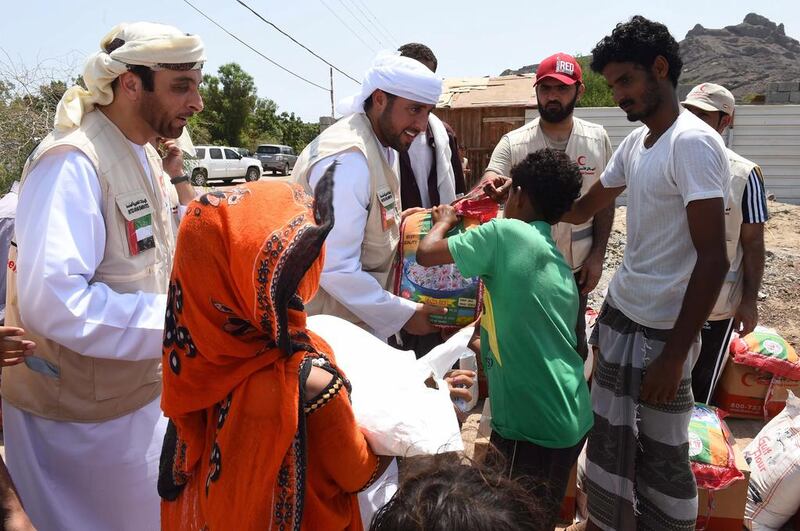The large attendances at the funerals of the four Emirati servicemen who died in Yemen last week delivers a powerful statement that these martyrs will never be forgotten. But it also reflects another important point: an endorsement of the UAE's part in the mission to restore Yemen's internationally recognised government.
While the funerals were taking place, forces loyal to president Abdrabu Mansur Hadi and the Saudi-led coalition supporting them continued to make steady progress against rebel positions in the south and near the capital, Sanaa. There will be both victories and setbacks in the future but the commitment to the overall trajectory of this conflict remains resolute: control of Yemen will be wrested from the Iran-backed Houthi rebels and army units that remain loyal to former president Ali Abdullah Saleh.
The goal ultimately is not simply to reinstate Mr Hadi and his government but to bring peace, stability and economic opportunity to a country that was already the poorest in the Arabian peninsula well before the Houthis and Saleh-aligned militias took over large parts of it. The Dh522 million raised in the Emirates Red Crescent’s Yemen: We Care campaign is part of Dh808 million the UAE has allocated to Yemen from public funds. Our leaders have pledged that more will follow to ensure the lives of ordinary Yemenis improve.
In stark contrast to that are the reports emerging from Yemen that retreating Houthi militias have been randomly shelling civilian areas and blockading medical and other supplies from being sent to Taez, a strategically important former Yemeni capital located between Sanaa and Aden.
Although the rebel forces have indicated they will abide by the UN-backed plan to end the conflict in Yemen, there has been no formal announcement by them. Tellingly, none of the crucial points of the plan – recognition of the Hadi government, withdrawal from areas seized since the start of the uprising and surrendering of weapons and munitions taken from the Yemen military – have been met. Combined with the reputation of the Houthis and Saleh loyalists of saying one thing then doing another, this is a case where actions speak louder than pledges.
Sooner or later, Yemen will return to Hadi government control. The rebels can let that happen now by negotiation, rather than inflicting more suffering on ordinary Yemenis caught in the middle.





